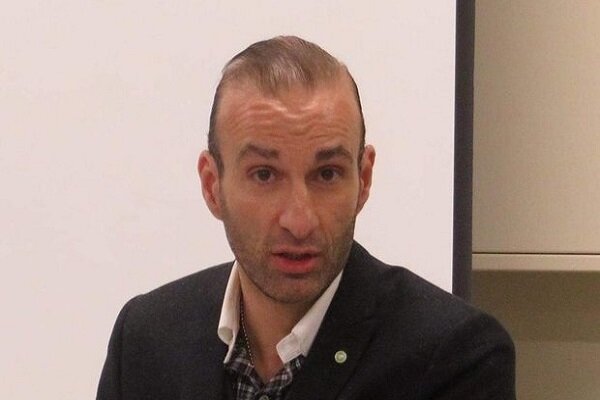U.S foreign policy suffering from hypocrisy: professor

TEHRAN - Arshin Adib-Moghaddam, a London-based professor, says that the U.S foreign policy suffers from hypocrisy.
“The hypocrisy in the discourse is primarily a problem for U.S. foreign policy itself, as the leaders of the country are seen to be caught up in their own double standards,” Professor Adib Moghaddam tells the Tehran Times.
The professor in global thought and comparative philosophies at SOAS also says, “human rights are absolute” and “we don't need the U.S. state or anyone else to set the standards for human rights violations.”
He adds, “Human dignity, freedom, democracy, pluralism, tolerance are innate human traits with which we are born.”
Recently, U.S. President Joe Biden directed a declassification of certain documents related to the Sept. 11 attacks in a supportive gesture to the families of victims who have long sought a possible involvement of the Saudi Kingdom in the attacks.
For twenty years the U.S. has prevented revealing information about possible Saudi Arabia’s link to the Sept. 11 attacks. Moreover, America prefers not to raise human rights in talks with Saudi authorities, while they spare no efforts to condemn countries such as Russia, China, and Iran for allegations of human rights violations.
Such an approach has raised questions about Washington’s foreign policy as American authorities turn a blind eye to their own values like democracy, liberty and human rights.
"The United States isn't the only country that uses fake values to further its foreign policies and fails, but it has probably the most disastrous failing rate in recent history,” Adib Moghaddam argues.
Following is the text of the interview:
Q: How do you see the impact of the U.S. withdrawal from Afghanistan on Biden's popularity and position in America? Some polls talk about a decline in Biden's popularity. As well, some Democrats slam the modality of the U.S. withdrawal from Afghanistan.
A: In general, the electorate in the United States is rather agnostic about foreign policy issues, as there is a lack of deeper knowledge about the world at the heart of U.S. society. Ultimately, Biden is a cautious president which is both due to the excesses of the Trump presidency and the disasters it brought about including the storming of the Capitol and a changed world order that demands a general acknowledgment that U.S. hegemony has been seriously constrained. I have analyzed this decline in my most recent study "What is Iran?"
Q: To what extent does the American public care about foreign policy? For example, escalation over Iran's nuclear program?
A: Mostly, they really don't care, also because the political culture in the United States is geared to domestic, even local issues rather than international affairs. Iran is enmeshed in a problematic "Middle Eastern" narrative with Orientalist undertones as Edward Said rightly pointed out over four decades ago. There are many bright intellects in the country, of course, and they would largely confirm my assessment about the relative ignorance of the mainstream in the United States, about specific foreign policy issues such as Iran.
Q: Biden has ordered the declassification of documents related to the Sept. 11 attacks in response to calls from the family of victims for revealing the whole truth. Can it help Biden restore public confidence? How far may the U.S. administration go in telling the truth in this regard?
A: In democracies, states are forced to react to the demands of civil societies. This is an immensely helpful factor in ensuring a degree of "good governance" and for holding state officials accountable. This is one of the main differences to authoritarian systems, where the ruling elite rule almost arbitrarily and where they hover above the law. The declassification must be seen within that larger dialectic between U.S. civil society and the state.
Q: The U.S. is used to blame its foes for human rights violations while turning a blind eye to what Saudi Arabia and its other allies commit. How do you read this behavior?
A: Human rights are absolute. We don't need the U.S. state or anyone else to set the standards for human rights violations. The hypocrisy in the discourse is primarily a problem for U.S. foreign policy itself, as the leaders of the country are seen to be caught up in their own double standards.
Q: Do you think that successive U.S. administrations have been successful in balancing America's interests with its fundamental values, at least in foreign policy areas?
A: The United States isn't the only country that uses fake values to further its foreign policies and fails, but it has probably the most disastrous failing rate in recent history. Human dignity, freedom, democracy, pluralism, tolerance are innate human traits with which we are born. History has shown and intellectuals have demonstrated that any system acting against these human traits will fail, both in terms of its domestic politics and international relations.
